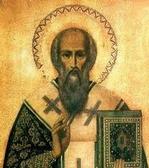Solzhenitsyn as prophet
By Phil Lawler ( bio - articles - email ) | May 20, 2025
“A decline in courage may be the most striking feature that an outside observer discerns in the West today.”
Those are the words of Aleksandr Solzhenitsyn, in an address delivered at Commencement ceremonies at Harvard University in 1978. If the West lacks courage, the great Russian writer certainly did not. His speech at Harvard is only one of many public addresses that electrified and sometimes outraged Solzhenitsyn’s audiences. Now his son, Ignat Solzhenitsyn, has collected the most memorable of those talks in a single volume: We Have Ceased to See the Purpose: Essential Speeches of Aleksandr Solzhenitsyn, newly published by the University of Notre Dame Press.
Too many social commentators are praised as prophets. Solzhenitsyn is one of the few who deserves the title. His voice is prophetic not only because he delivers uncomfortable truths, but also because he offers accurate predictions. Like most prophets, unfortunately, he is unpopular—unpopular especially among the self-appointed arbiters of popular opinion, who resent his indictment of their shallow thinking.
Having been exiled in 1974 from his beloved native Russia, where the Communist regime rightly saw him as a subversive threat, Solzhenitsyn lived for years in America as an exile, emerging from his seclusion only occasionally to warn his Western hosts that their society, too, was rushing toward collapse. At Harvard he made his prediction plainly:
If the world hasn’t approached its ruin, it has surely reached a turn in history, equal in importance to the turn from the Middle Ages to the Renaissance. It will demand from us a spiritual epiphany.
Speaking to a New York audience in 1993, he sounded the same warning:
Even though the twentieth century has seen the more bitter and disheartening lot fall to the peoples under Communist domination, our whole world is living through a century of moral illness, which could not but give rise to correspondingly ubiquitous illness in art.
Notice, in that quotation, that the Russian author sees bad art as a symptom of moral corruption. His message is fundamentally a call for moral revival—for that “spiritual epiphany” that he sought to coax out of reluctant Harvard graduates. That moral message is particularly unwelcome to mass-media commentators, who prefer to see everything in purely political terms, and therefore classify Solzhenitsyn as a opponent of democracy.
True, Solzhenitsyn is suspicious of the popular will. But listen to his message a bit more carefully, and notice that his harshest criticism is directed not at the ordinary people—not at the mass of voters in a democracy—but at the leaders who conspire to shape their opinions. He is particularly devastating, in fact, in his attitude toward the mass media. In that Harvard address he explained:
Because instant, authoritative information is required, it becomes necessary to resort to guesswork, rumors, and suppositions to fill in the voids—and none of them will ever be refuted, but will instead settle into the public’s memory. How many hasty, rash, immature, and misleading judgments are expressed every day, hoodwinking readers—and then hardening in place.
Not long after his exile from Russia, Solzhenitsyn was given the opportunity to speak to a BBC audience, and responded by criticizing not only the media (implicitly including the BBC), but the history of what he saw as British betrayal of the Russian people. Perhaps not coincidentally, from the time of that talk in 1976, fashionable media outlets began to dismiss him as a fascist—thereby neatly fulfilling the propaganda goals of the Soviet Union.
But the “fascist” claim is a calumny. Unlike any of the ideologues of the 20th century—including the ideologues of secular liberalism—Solzhenitsyn saw the folly of any effort aimed at “the planting on Earth of the Kingdom of God.” As the title of this collection of his speeches suggests, he sought to recall to mind the purpose of human life, which is oriented toward the Divine. In his speeches he shows himself as a religious rather than political thinker. Thus his lament:
Having established man—with all his shortcomings and greed—as the highest measure of all things, and having given ourselves over to the Material, immoderately and with abandon, we’ve now clogged up the works amidst profuse pollution; we are mired in refuse that fills up and chokes all the spheres of our existence.
Most Americans associate Solzhenitsyn with the Gulag Archipelago, his devastating portrayal of the brutality of Soviet repression. That monumental work alone should have secured his reputation. But Solzhenitsyn has delivered much more than that. Certainly he saw the Soviet regime as a monstrosity of human evil. But he saw the same evil elsewhere; he recognized the same ugly thread running through human history. Among the talks in this book, perhaps the most remarkable is his “Reflection on the Vendée Uprising,” in which he clearly recognizes the common cause that unites the prisoners of the Soviet prison camps with the Catholic peasants who defied the French Revolution.
All comments are moderated. To lighten our editing burden, only current donors are allowed to Sound Off. If you are a current donor, log in to see the comment form; otherwise please support our work, and Sound Off!
-
Posted by: ewaughok -
May. 29, 2025 3:01 AM ET USA
I have not read Solzhenitsyn‘s “Reflection on the Vendée Uprising,” but was immediately reminded of Honoré de Balzac‘s novel, “Les Chouans” which tells the story of the heroic struggle of the Vendée revolt against the atheistic Republic, in favor of royalty and the Catholic faith. As a novelist, Solzhenitsyn must’ve been familiar with Balzac’s novel. I am anxious to read his address!





